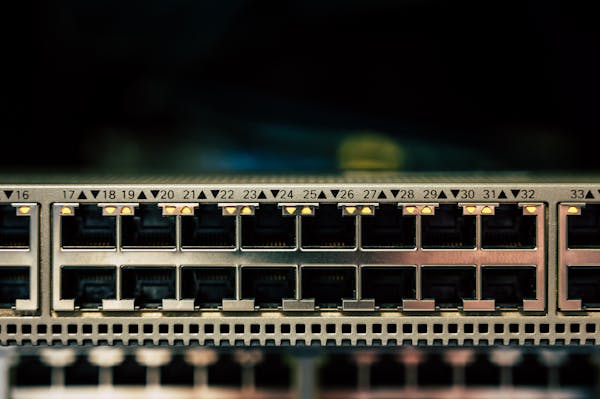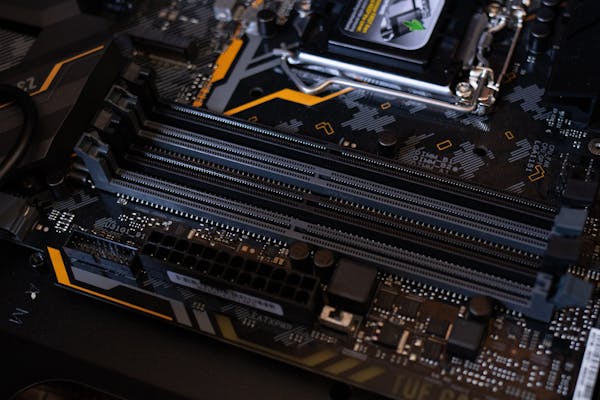
Understanding 4G Rotating Proxies
As internet privacy becomes paramount, 4G rotating proxies have become essential for maintaining online privacy.
What Are 4G Rotating Proxies?
4G rotating proxies employ mobile networks to rotate IP addresses to users. Unlike static proxies, they offer dynamic IP rotation, improving security.
How Do They Work?
Upon activation, users receive a 4G network IP. These IPs change after specific durations or actions, making tracking difficult.
Why Opt for 4G Rotating Proxies
- Enhanced Anonymity: Dynamic IP rotation masks real IP addresses.
- Bypassing Geo-Restrictions: Changing IPs allow access to restricted content.
- Reduced IP Bans: Frequent IP changes avoid detection systems.
Applications of 4G Rotating Proxies
- Web Scraping: Rotating IPs ensure continuous data collection.proxies support multiple profiles.
- Marketing Research: Changing IPs monitor competitor strategies.
- o Consider}
In choosing a proxy service, consider:
- IP Pool Size: A larger pool enhances anonymity.
- Switching Mechanisms: Determine if the service offers customizable intervals.
- Location Options: Access to multiple regions broadens usability.
Limitations to Be Aware Of
- Budget Concerns: 4G proxies often have higher costs compared to other types.
- Connection Stability: Mobile networks can be less stable.
- Compliance Issues: Ensure usage respects terms of service.
Summing Up
Mobile 4G proxies provide dynamic IP solutions, establishing their importance in contemporary online activities.
Delving into the Operational Aspects of 4G Rotating Proxies
Within the sphere of online anonymity, 4G rotating proxies have gained prominence for bypassing geo-restrictions.
An Overview of 4G Rotating Proxies
4G rotating proxies leverage mobile networks to provide changing IPs to users. Unlike static proxies, they offer dynamic IP rotation, improving security.
Operational Dynamics
Upon connection, users receive a 4G network IP. These IPs change after specific durations or actions, hindering surveillance.
Advantages of 4G Rotating Proxies
- Improved Privacy: Dynamic IP rotation prevents tracking.
- Accessing Region-Locked Content: Changing IPs facilitate unrestricted browsing.
- Lowered Detection Rates: Frequent IP changes avoid detection systems.
Use Cases for Mobile Proxies
- Information Gathering: Rotating IPs ensure continuous data collection.
- Multiple Account Handling: Dynamic proxies facilitate automation.
- Competitor Analysis: Changing IPs validate ad placements.
Choosing the Right Proxy Service
Before selecting a provider, consider:
- Diversity of IP Addresses: A larger pool reduces repetition.
- Switching Mechanisms: Determine if the service has fixed durations.
- Regional Availability: Access to multiple regions supports diverse tasks.
Potential Challenges
- Budget Concerns: 4G proxies can impact budgets compared to other types.
- Performance Issues: Mobile networks may affect consistency.
- Compliance Issues: Ensure usage aligns with laws.
Final Thoughts
4G rotating proxies enhance online privacy, positioning them as essential tools in contemporary online activities.
In the modern digital age, maintaining online privacy and avoiding blocks has become more important than ever. Affiliate marketers, agencies, and SEOs often rely on proxies to change their IPs. Among these, 4G LTE rotating proxy servers have become game-changers.
But how do they compare to other alternatives like SOCKS5 proxies? Let’s break it down.
== What is a 4G Rotating Proxy?
A 4G rotating proxy is a proxy that relays requests through real mobile networks. These proxies change IPs at custom timeframes or upon request, emulating human behavior and reducing the chance of bans or blocks.
== Main Proxy Types
Let’s look at the key proxy types before comparing:
1. **Datacenter Proxies**
– High-speed and cheap, but easily detectable.
2. **Residential Proxies**
– Use IPs assigned to real homes. More legit, but slower and costlier.
3. **4G Mobile Proxies**
– Use real SIMs on LTE networks. Best for scraping, bots, social media.
4. **SOCKS5 Proxies**
– Protocol-based, flexible, used for various apps, not just HTTP.
== Comparison Table
| Feature | 4G Rotating Proxies | Datacenter Proxies | Residential Proxies | SOCKS5 Proxies |
|————————|———————|———————|———————|—————-|
| IP Source | Mobile Network (SIM)| Data Centers | Home IPs | Varies |
| Rotation | Yes (Frequent) | Sometimes | Optional | Manual |
| Ban Resistance | High | Low | Medium | Depends |
| Speed | Medium | High | Low-Medium | High |
| Price | High | Low | Medium | Low-Medium |
| Target Use | Social, Ads, Bots | General Scraping | E-commerce, Research| General |
| Block Detection | Low | High | Medium | Medium |
== Technical Advantages of 4G Rotating Proxies
What gives mobile proxies their edge?
– **Real Device Trust**: Websites trust mobile IPs more than others due to carrier NAT and wide user pools.
– **Shared Reputation**: IPs are shared across many users, making banning a single user risky.
– **Geo-targeted Mobile Carriers**: Rotate between networks in real U.S. cities or countries.
– **Dynamic Rotation**: Can rotate every few minutes or after each request.
– **Bypasses Captchas**: Mobile IPs are less likely to trigger captchas or challenge verifications.
== Where 4G Proxies Win
Let’s be real— if you’re scraping Google or LinkedIn, nothing works better than a solid 4G proxy.
– Instagram and TikTok trust mobile IPs.
– Web scraping? You’ll trigger fewer blocks.
– Ads management across banned zones? Done.
== Where They Fall Short
– **Cost**: They’re way more expensive.
– **Speed**: Slower than static datacenter options.
– **Limited Threads**: Some providers limit concurrent usage.
== SOCKS5 vs 4G: Protocol vs Behavior
If you need raw protocol-level control, SOCKS5 is your friend. But they don’t have native rotation.

| Attribute | 4G Proxy | SOCKS5 Proxy |
|———————|——————–|——————–|
| Protocol Type | HTTP/HTTPS | SOCKS5 (All apps) |
| Rotation | Yes | Manual |
| IP Trust Level | Very High | Medium |
| Use Cases | Social, Ads, Bots | Torrenting, Apps |
== Use Cases Side-by-Side
**4G Rotating Proxies:**
– Social Media Management
– Mobile Ad Verification
– SEO Scraping
– Sneaker Bots / E-com Testing
– Marketplace Automation
**Datacenter Proxies:**
– High-volume scraping (non-sensitive)
– Speed-demanding tasks
– Price-conscious campaigns
**Residential Proxies:**
– E-com price intelligence
– Research tools
– CAPTCHA-heavy targets
**SOCKS5 Proxies:**
– Application-level traffic routing
– Anonymity over torrents
– Bypassing firewalls
== How to Choose the Right One?
Not all proxies are created equal. Here’s how to choose:
– Need speed? Go datacenter.
– Need trust and stealth? Go 4G mobile.
– Need app-level routing? Go SOCKS5.
– Need wide IP pools without rotation? Try residential.
== Future of 4G Rotating Proxies
With AI detection systems growing smarter, only carrier networks are keeping up. We’re seeing:
– 5G proxy rollouts in testing
– Smarter rotation algorithms
– Integration with automation platforms like Jarvee, NextPost, Puppeteer
== Final Verdict
If you’re serious about anonymity, 4G rotating proxies are your best bet. For any campaign that’s sensitive, black-hat, or gray area, it’s worth the investment.
== Spintax Conclusion
So, whether you’re an agency scaling campaigns, investing in the right proxy is key to success.
They come with a premium, but the results speak for themselves.
https://www.fortinet.com/resources/cyberglossary/proxy-server
https://en.wikipedia.org/wiki/Proxy_server
https://support.microsoft.com/en-us/windows/use-a-proxy-server-in-windows-03096c53-0554-4ffe-b6ab-8b1deee8dae1
https://www.reddit.com/r/explainlikeimfive/comments/1dfgepb/eli5_what_is_a_proxy_server_and_why_would_i_as_an/
https://surfshark.com/blog/proxy-server
Check more https://popl.co (Proxy Seller Coupon Code Discounts)
